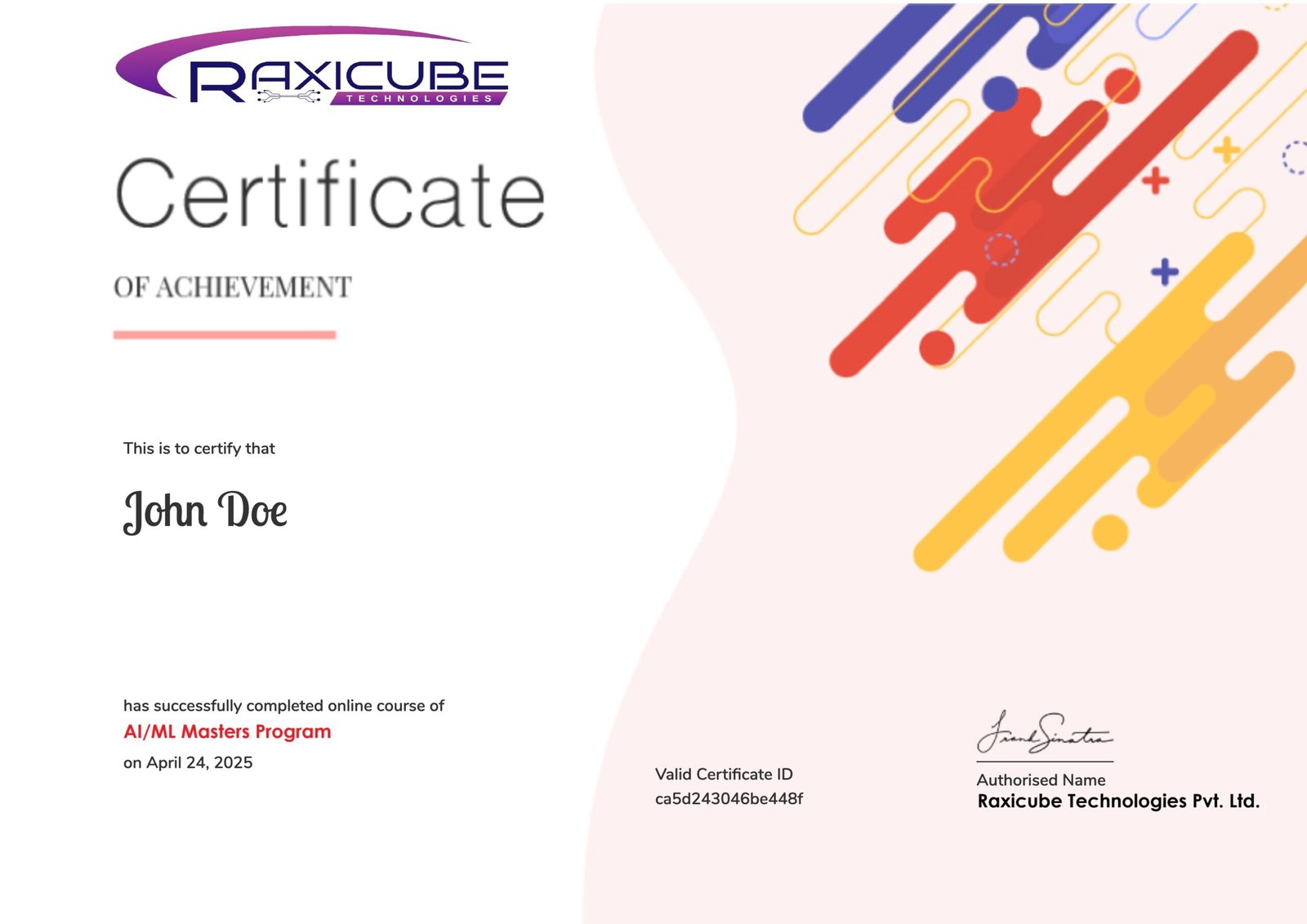Our AWS Data Engineering course is designed to make you a skilled cloud data professional by mastering the most in-demand Amazon Web Services (AWS) tools used in modern data engineering. This comprehensive training covers Amazon S3, AWS Glue, Amazon Redshift, Kinesis, Athena, and EMR, enabling you to build and manage scalable, secure, and cost-effective data pipelines. You will gain hands-on experience with ETL/ELT processes, data ingestion, transformation, and analytics using real-world datasets and industry projects. The course is aligned with the AWS Certified Data Analytics – Specialty certification, ensuring that you not only learn the tools but also prepare for globally recognized credentials. By working on real-time and batch data engineering projects, you will develop the expertise to integrate diverse data sources, optimize workflows, and deliver business-ready insights. Whether you are starting your career or upskilling, this program prepares you for high-demand AWS Data Engineer roles across industries.
If you have three or more people in your training we will be delighted to offer you a group discount
If you want to give the Trending technology experience to your esteemed employees, we are here to help you.
Raxicube Technologies Certification is accredited by all major Global Companies around the world. We provide certification after completion of the theoretical and practical sessions to freshers as well as corporate trainees. Our certification at Raxicube Technologies is accredited worldwide, increasing the value of your resume. This allows you to attain leading job posts with the help of this certification in leading MNC’s of the world. The certification is only provided after successful completion of our training and practical based projects.








Artificial Intelligence refers to the capability of machines to imitate human intelligence processes. These systems perform tasks like learning, problem-solving, and decision-making by analyzing data, identifying patterns, and making predictions. Core AI subfields include machine learning, natural language processing, robotics, and computer vision.
Machine Learning is a subset of AI focused on enabling machines to learn from data and improve over time without being explicitly programmed. It involves training algorithms on data to perform tasks such as classification, prediction, and pattern recognition. ML includes techniques like supervised, unsupervised, and reinforcement learning.
A Machine Learning Engineer designs and deploys machine learning models. They collaborate with data scientists and software developers to build scalable ML systems, choose suitable algorithms, evaluate models, and integrate them into production environments.
Raxicube’s AIML course offers a comprehensive learning path designed to make you a proficient Machine Learning Engineer. It covers core concepts and advanced topics, providing practical knowledge through instructor-led and self-paced modules.
This course is ideal for:
Beginners exploring AI/ML
Data science professionals
Software engineers integrating ML into applications
Business analysts and tech enthusiasts
There are no strict prerequisites for enrollment. This Machine Learning certification course is designed to accommodate various professional backgrounds. While a basic understanding of Python, Machine Learning, and Artificial Intelligence concepts can be advantageous for quicker comprehension, our highly skilled trainers explain everything from the ground up, making it accessible for everyone.
As part of our commitment to providing a holistic understanding of AI and Machine Learning, our course covers an expansive variety of topics to make you a proficient Machine Learning Engineer. These include:
Raxicube’s AI and Machine Learning Course is a thoughtful compilation of Instructor-led Program. After each session Student can watch session recording in self-paced manner. This blended approach allows learners to be guided by industry experts during live sessions while also providing the flexibility to learn at their own pace through comprehensive self-study materials.
The recommended duration to complete this AI and ML Course is 24 weeks.
Yes, upon successful submission and verification of the final assessment for each individual course within the learning pathway, you will receive a certificate of completion for that specific course.
You will get 1.5 years of access to the study materials for this AI and Machine Learning Course. You can access it anytime from anywhere.
You will never miss a lecture at Raxicube Technologies. You can view the recorded session of any missed live class at your convenience.
Machine Learning Engineers, Natural Language Processing (NLP) Engineers, and Deep Learning Engineers are highly sought after due to their cross-disciplinary skill sets and the high demand across various industries, including tech, healthcare, finance, and more. This rapidly growing field offers lucrative salaries and abundant opportunities for career advancement and professional development.
Absolutely. Acquiring relevant certifications and skills is essential to distinguish yourself in the competitive field of machine learning. Raxicube’s Machine Learning Certification course offers a structured path to learning the latest trends and acquiring the necessary skills. This course is particularly beneficial for those looking to keep pace with ongoing innovations and enhance their expertise in the field.
Artificial intelligence (AI) and AI engineering have been witnessing significant growth, and numerous statistical indicators support the attractiveness of becoming an AI engineer.
Yes, Machine Learning is an extremely promising and rapidly growing field with endless potential for professional advancement and career growth. The demand for Machine Learning professionals continues to surge as more organizations leverage ML to extract insights from their data and make data-driven decisions.
Upon completing this Raxicube AI and Machine Learning Course, you’ll be eligible for various in-demand roles, including:
Top companies such as IBM, EMC, Amazon, GE, Honeywell, Samsung, and MuSigma, … what not every company is heavily investing on AI and actively hiring Certified AI ML Engineer professionals for various positions.
The average salary for a Machine Learning Engineer in the United States typically ranges from around $100,000 to $150,000 per year. Highly skilled and experienced engineers, especially those at top tech companies or in specialized fields, may earn significantly higher salaries, potentially exceeding $200,000 per year.
Definitely, yes. We help students in their job search endeavors, providing guidance and support to secure relevant opportunities.
In Machine Learning, algorithms are sets of rules or procedures that enable computers to learn from data to find patterns, make predictions, or make decisions without being explicitly programmed. Common examples include decision trees, neural networks, and support vector machines. Key components of a machine learning algorithm include input data, a learning process, model creation, testing and validation, and optimization.
The three fundamental steps to Machine Learning model training are:
The four main types of Machine Learning are:
The “best” project depends on your goals, skill level, and interests. Here are examples across different levels:
Preparing for a Machine Learning interview involves a combination of theoretical understanding, coding practice, and hands-on project experience. Follow these steps:
Some highly recommended books for Machine Learning beginners include:
Machine Learning is extensively used across various real-world applications, including:
Some of the most popular Machine Learning tools and frameworks include:
The typical processes in a Machine Learning workflow are:
Yes, you can download the Machine Learning course syllabus from the Raxicube platform by registering and providing your email and phone number.